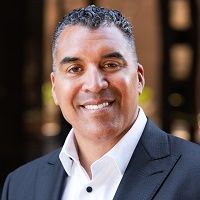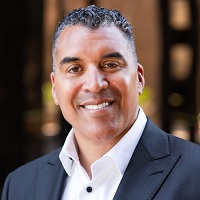Integrity, Generosity and Wealth: A Faith-Based Approach to Business
Entrepreneurs who align their business and financial decisions with the biblical principles of integrity, generosity and helping others can realize impactful and fulfilling success.


Profit and prosper with the best of Kiplinger's advice on investing, taxes, retirement, personal finance and much more. Delivered daily. Enter your email in the box and click Sign Me Up.
You are now subscribed
Your newsletter sign-up was successful
Want to add more newsletters?

Delivered daily
Kiplinger Today
Profit and prosper with the best of Kiplinger's advice on investing, taxes, retirement, personal finance and much more delivered daily. Smart money moves start here.

Sent five days a week
Kiplinger A Step Ahead
Get practical help to make better financial decisions in your everyday life, from spending to savings on top deals.

Delivered daily
Kiplinger Closing Bell
Get today's biggest financial and investing headlines delivered to your inbox every day the U.S. stock market is open.

Sent twice a week
Kiplinger Adviser Intel
Financial pros across the country share best practices and fresh tactics to preserve and grow your wealth.

Delivered weekly
Kiplinger Tax Tips
Trim your federal and state tax bills with practical tax-planning and tax-cutting strategies.

Sent twice a week
Kiplinger Retirement Tips
Your twice-a-week guide to planning and enjoying a financially secure and richly rewarding retirement

Sent bimonthly.
Kiplinger Adviser Angle
Insights for advisers, wealth managers and other financial professionals.

Sent twice a week
Kiplinger Investing Weekly
Your twice-a-week roundup of promising stocks, funds, companies and industries you should consider, ones you should avoid, and why.

Sent weekly for six weeks
Kiplinger Invest for Retirement
Your step-by-step six-part series on how to invest for retirement, from devising a successful strategy to exactly which investments to choose.
In today's world, there's a lot of misconception over the term "Christian." Some people associate the word with judgment, hypocrisy or outdated beliefs.
However, at its core, being a follower of Christ is about striving to live according to the principles of God's Kingdom — principles that are timeless, transformative and meant to shape every aspect of our lives, including business and finance.
Living as a Kingdom citizen means walking in the authority God has given us — an authority that extends to every area of our lives. As an entrepreneur and investor, I strive daily to align my decisions with the values of God's Kingdom.
From just $107.88 $24.99 for Kiplinger Personal Finance
Become a smarter, better informed investor. Subscribe from just $107.88 $24.99, plus get up to 4 Special Issues

Sign up for Kiplinger’s Free Newsletters
Profit and prosper with the best of expert advice on investing, taxes, retirement, personal finance and more - straight to your e-mail.
Profit and prosper with the best of expert advice - straight to your e-mail.
The Kiplinger Building Wealth program handpicks financial advisers and business owners from around the world to share retirement, estate planning and tax strategies to preserve and grow your wealth. These experts, who never pay for inclusion on the site, include professional wealth managers, fiduciary financial planners, CPAs and lawyers. Most of them have certifications including CFP®, ChFC®, IAR, AIF®, CDFA® and more, and their stellar records can be checked through the SEC or FINRA.
This means embracing integrity, generosity and a Kingdom-driven approach to wealth. It also means rejecting the extremes of prosperity gospel and scarcity mentality, instead seeking biblical wisdom on how to steward financial resources effectively.
Faith and finance
Money is a sensitive topic in Christian circles. It is a topic that has been misused and misrepresented in the Church. On one end of the spectrum, some preach that faith alone will bring financial abundance. On the other, some claim that true humility comes from poverty.
These conflicting messages leave many believers unsure of how to approach money in a way that aligns with their faith.
The truth is, wealth is neither inherently good nor evil — it is a tool. The Bible warns against the love of money, not money itself. It calls us to be wise stewards, multiplying what we've been given while using it to bless others.
Unfortunately, much of the Church focuses on extending grace for big sins but leaves little room for big blessings. We must shift the narrative.
Financial success, when rooted in biblical principles, can be a powerful vehicle for impact, allowing us to serve others more effectively and further the work of the Kingdom.
Applying biblical values in business
Integrity is the cornerstone of my business philosophy. As a successful entrepreneur in the real estate investment industry, I have seen many opportunities to make quick money at the expense of others.
I have turned down numerous deals that, while profitable to my company, would not
have been accretive to my investors. Choosing integrity over short-term gains has always proven to be the right decision — not only ethically but also financially. God honors businesses that operate with honesty and transparency.
Operating with biblical values in business also means being intentional about how we treat employees, partners and clients. Leadership is not about power; it's about service.
A faith-driven entrepreneur must be willing to make difficult decisions that prioritize long-term integrity over immediate profits. In the end, doing business God's way welcomes the biggest blessings.
Serving others first
A fundamental principle of God's Kingdom is putting others before ourselves. In my business, this translates to prioritizing the well-being of my clients over financial gain.
Unfortunately, in the investment world, many firms push products onto clients without considering their best interests. Some investors, particularly retirees, depend on their investments for financial security. If placed in unsuitable deals, their entire livelihood can be jeopardized.
At our firm, we take a different approach. If an investment is not the right fit for a client, we are willing to walk away rather than risk their financial well-being.
Looking for expert tips to grow and preserve your wealth? Sign up for Building Wealth, our free, twice-weekly newsletter.
This commitment to service may mean fewer transactions in the short term, but it builds long-term trust and credibility. When we serve with integrity, we create lasting relationships and a reputation that attracts the right opportunities.
Embracing generosity as a business strategy
Generosity is often seen as an act of charity, but in God's economy, it is a principle of multiplication. The world teaches us to accumulate, but the Bible teaches us to give. Counterintuitively, the more we give, the more we receive — not just financially, but in the fulfillment and impact we create.
My business is built on the belief that generosity is not just a personal virtue but a corporate strategy. This means ensuring that our success benefits not just shareholders but employees, clients and the communities we touch.
Generosity can take many forms — fair wages, philanthropy, mentorship and ethical decision-making that prioritizes people over profits. When generosity becomes part of a company's culture, it transforms the way we do business and the legacy we leave.
Kingdom-driven wealth
At the heart of biblical finance is a simple truth: Nothing we have is truly ours. Everything belongs to God, and we are merely stewards of His resources.
This mindset shifts the way we approach wealth. Instead of hoarding, we hold it with open hands. Instead of chasing success for selfish gain, we pursue it with the intent to bless others.
Purpose-driven wealth is about more than financial security — it's about impact. It's about using our resources to create opportunities, uplift communities and further God's work on earth.
When we align our businesses and finances with Kingdom principles, we experience a different kind of success — one that is both spiritually fulfilling and materially sustainable.
Business is about more than profits
At the end of the day, business is not just about profit margins and balance sheets. It is about purpose. As entrepreneurs, we have the unique opportunity to demonstrate what it means to be citizens of God's Kingdom in every aspect of our work.
We can lead with integrity, serve with humility, give with generosity and steward wealth with wisdom.
Faith and finance are not opposing forces — they are meant to work together. When we view our businesses as extensions of God's Kingdom, we redefine success. It is no longer about how much we accumulate but about how effectively we steward what we have been given.
In God's economy, true wealth is not measured by what we keep but by what we give and the impact we create.
If you'd like to learn more about Kingdom economics and discover the true meaning of prosperity, check out my new book, Money, Faith & The Kingdom: What I've Learned Since Starting My Podcast.
Related Content
- Popes Live Longer: Four Ways You Can Too
- Real Estate Bridge Funds: An Expert Guide to Investing in a Volatile Market
- Investing in Senior Housing: Why 2025 Might Be the Sector’s Best Year Yet
Profit and prosper with the best of Kiplinger's advice on investing, taxes, retirement, personal finance and much more. Delivered daily. Enter your email in the box and click Sign Me Up.

Edward Fernandez is President and Chief Executive Officer of 1031 Crowdfunding. With three-year revenue growth of 482%, 1031 Crowdfunding received ranking No. 1348 among America’s Fastest-Growing Private Companies on the Inc. 5000 list. Mr. Fernandez holds FINRA Series 6, 7, 24, and 63 licenses and is a Forbes Business Council Member. He has over 20 years of inside and outside sales experience and is personally involved in raising over $800 million of equity from individual and institutional investors through private and public real estate offerings. He is highly skilled in the simplification of highly complex real estate strategies and sophisticated investments and is regularly featured on Forbes, Inc., and the TD Ameritrade Network.
-
 Quiz: Do You Know How to Avoid the "Medigap Trap?"
Quiz: Do You Know How to Avoid the "Medigap Trap?"Quiz Test your basic knowledge of the "Medigap Trap" in our quick quiz.
-
 5 Top Tax-Efficient Mutual Funds for Smarter Investing
5 Top Tax-Efficient Mutual Funds for Smarter InvestingMutual funds are many things, but "tax-friendly" usually isn't one of them. These are the exceptions.
-
 AI Sparks Existential Crisis for Software Stocks
AI Sparks Existential Crisis for Software StocksThe Kiplinger Letter Fears that SaaS subscription software could be rendered obsolete by artificial intelligence make investors jittery.
-
 5 Top Tax-Efficient Mutual Funds for Smarter Investing
5 Top Tax-Efficient Mutual Funds for Smarter InvestingMutual funds are many things, but "tax-friendly" usually isn't one of them. These are the exceptions.
-
 Why Invest In Mutual Funds When ETFs Exist?
Why Invest In Mutual Funds When ETFs Exist?Exchange-traded funds are cheaper, more tax-efficient and more flexible. But don't put mutual funds out to pasture quite yet.
-
 Social Security Break-Even Math Is Helpful, But Don't Let It Dictate When You'll File
Social Security Break-Even Math Is Helpful, But Don't Let It Dictate When You'll FileYour Social Security break-even age tells you how long you'd need to live for delaying to pay off, but shouldn't be the sole basis for deciding when to claim.
-
 I'm an Opportunity Zone Pro: This Is How to Deliver Roth-Like Tax-Free Growth (Without Contribution Limits)
I'm an Opportunity Zone Pro: This Is How to Deliver Roth-Like Tax-Free Growth (Without Contribution Limits)Investors who combine Roth IRAs, the gold standard of tax-free savings, with qualified opportunity funds could enjoy decades of tax-free growth.
-
 One of the Most Powerful Wealth-Building Moves a Woman Can Make: A Midcareer Pivot
One of the Most Powerful Wealth-Building Moves a Woman Can Make: A Midcareer PivotIf it feels like you can't sustain what you're doing for the next 20 years, it's time for an honest look at what's draining you and what energizes you.
-
 Stocks Make More Big Up and Down Moves: Stock Market Today
Stocks Make More Big Up and Down Moves: Stock Market TodayThe impact of revolutionary technology has replaced world-changing trade policy as the major variable for markets, with mixed results for sectors and stocks.
-
 I'm a Wealth Adviser Obsessed With Mahjong: Here Are 8 Ways It Can Teach Us How to Manage Our Money
I'm a Wealth Adviser Obsessed With Mahjong: Here Are 8 Ways It Can Teach Us How to Manage Our MoneyThis increasingly popular Chinese game can teach us not only how to help manage our money but also how important it is to connect with other people.
-
 Looking for a Financial Book That Won't Put Your Young Adult to Sleep? This One Makes 'Cents'
Looking for a Financial Book That Won't Put Your Young Adult to Sleep? This One Makes 'Cents'"Wealth Your Way" by Cosmo DeStefano offers a highly accessible guide for young adults and their parents on building wealth through simple, consistent habits.